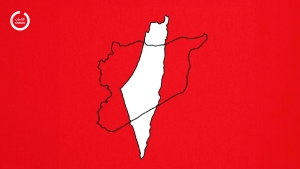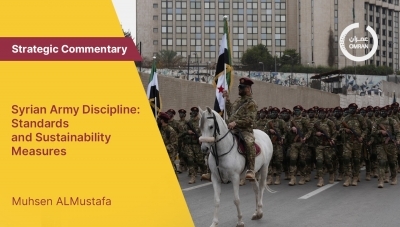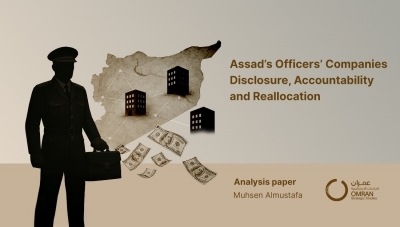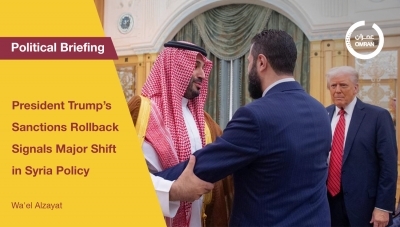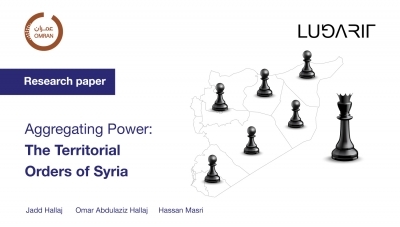Media Appearance
Gaza War: The Responses of Syria’s Local Actors
Given Syria's involvement in the Arab-Israeli conflict since 1948, solidarity with Palestine has been a fundamental element within Syria's political culture. Regarding Syria's local actors’ stances on Gaza war (Syrian regime, Syrian opposition, “Hayat Tahrir al-Sham”, and “Syrian Democratic Forces”), while there is consensus in expressing solidarity with the Palestinian people in Gaza, their approaches to the war varied significantly in respective to their stances on Hamas, the “al-Aqsa flood” operation, and how they used the war in their different political strategies. These differences stemmed from a blend of ideological political identities on one hand and objective considerations related to their different relations with international and regional actors on the other. This article provides insight into the discourse projected by these actors on Gaza.
The Syrian regime has consistently propagated a narrative of resistance since the onset of the Gaza war, publishing official statements through its foreign ministry or speeches delivered by its prominent figures, notably Bashar al-Assad and his Foreign Minister, Faisal Mekdad. The regime praised the “al-Aqsa flood” operation as a “glorious achievement,” linking it to the October 1973 war due to its historical significance as a victory within the Syrian and Arab narrative.
Using the Gaza war in emotional mobilization of its popular incubator and its narrative of conspiracy, the regime associated the Israeli aggression with the ongoing struggle in Syria, holding Israel accountable for supporting the perpetrators of the drone attack on the Homs Military Academy on October 5th. This sentiment was further underscored by Mekdad when he criticized the stances of the United States and European states on Gaza accusing them of “Western deceit and open appetite for killing Arabs, including Palestinians.” In response to Israeli escalation of targeting various Iranian and regime sites in Syria, the regime continued to propagate a discourse centered on the right to defend sovereignty and reclaiming the Golan Heights within the 1967 borders.
By political means, the Syrian regime leveraged the regional atmosphere after the Gaza war to bolster its diplomatic activity within the Arab League and its bilateral diplomatic engagement with various Arab countries. While Assad advocated for halting the process of Arab-Israeli normalization during the extraordinary joint Arab Islamic summit on Gaza in November, the regime did not record formal reservation on any of the summit's resolution provisions, including having “normal relations with Israel,” a reservation upheld by Algeria, Iraq, and Tunisia (1).
This reflects the regime's alignment with the official and prominent Arab stance concerning the Israeli aggression on Gaza in formal diplomatic means, while concurrently maintaining a vehement anti-Israeli and anti-Western sentiment through its rhetoric, as a cornerstone of the “axis of resistance” led by Iran.
“Hayat Tahrir al-Sham” adopted a different narrative toward the “al-Aqsa flood” operation in comparison to jihadist groups - al-Qaeda and its branches - that advocated in their statements for jihad and targeting Western sites in Muslim countries. HTS's official rhetoric, expressed through statements by its “Syrian Salvation Government,” revolved around praising the operation carried out by Hamas, endorsing the Palestinian people's right of “the entire liberation of Palestinian land,” and calling on the “international community and Arab nations” to halt the Israeli aggression on Gaza after the Israeli targeting of Jabalia refugee camp. HTS’s call, in essence, mirrored a statement issued earlier by the Taliban government, which has been promoted as a “model” by prominent figures within HTS.
As it has been promoting itself as a moderate actor, the SSG’s Ministry of Media issued -ironically- a statement on press freedom and condemned the Israeli targeting of journalists regardless of their faith. This condemnation included Israeli violations of the targeting of journalist Wael al-Dahouh's family, the killing of journalist Sherin Abu Akel in Palestine, and the targeting of journalist Carmen Joukhadar in Lebanon.
At the same time, the jihadist element remained present in the speeches of HTS figures, notably Abdul Rahim Atoun, the head of its Fatwa Council. He said that the conflicts in both Syria and Palestine constitute a jihad that is an "obligation" upon every Muslim. This declaration was made during a symposium titled "From Idlib to Gaza... One Wound," organized by the SSG’s Ministry of Media. This highlights the tone difference in the technical statements and media discourses as well as the continuation of the jihadist ideological element within HTS's narrative.
Nevertheless, the primary objective of the symposium was to draw parallels between the Palestinian resistance against Israel and the Syrian struggle against the regime. The focus was on highlighting the similarities in crimes committed against the Syrian and Palestinian people, by the Assad regime and Israel respectively. This narrative resonated with SSG’s official statement, which regarded Palestinian resistance as an inspiring model for the struggle against the Syrian regime. A narrative aligns with HTS's efforts to project a national-Islamist image at the expense of its former Jihadist one.
As for the Syrian Opposition, the Syrian Negotiation Commission, the Syrian National Coalition, and the Syrian Interim Government expressed solidarity with Gaza, particularly following the bombing of al-Maamadani Hospital. Both the statements from the Negotiations Committee and the National Coalition condemned the crimes committed by Israel and emphasized the significance of the Arab Peace Initiative (2002), rejecting the forced displacement of Gaza residents. Simultaneously, the Interim Government condemned the crimes of the Israeli occupation and declared a three-day national mourning in its controlled areas.
Regarding their stance on Hamas or “al-Aqsa flood,” there hasn’t been any official statement or position issued on the matters, given the challenge of attaining a unified stance within the opposition due to the varying and sometimes conflicting positions toward Hamas, driven by ideological or political reasons related to Hamas's stance on the Syrian regime or Iran. Let alone the objective considerations related to the opposition’s political relations with international and regional actors.
As for the “Syrian Democratic Forces,” the SDF-affiliated “Syrian Democratic Council,” issued a statement condemning the targeting of civilians in Gaza, particularly the al-Maamadani Hospital, taking into consideration the pro-Palestinian sentiment among Syrians. The statement made reference to the “right of the Palestinian people to self-determination,” in line with SDF’s claim of the “Autonomous Administration” in Northeastern Syria. On Hamas, the head of the SDF, Mazlum Kobane, condemned it, yet expressed concerns over the Israeli objective to eradicate Hamas because of the potential spillover effects of such eradication.
The response of local actors in Syria to the Gaza conflict varied significantly in their level of engagement, political stances, and the use of the war in their narratives. There has been notable and active engagement by the regime and HTS, moderate engagement from the opposition, and cautious one from the SDF. The regime leveraged the Gaza war in emotional mobilization within its popular incubator as a cornerstone of the resistance axis by endorsing Hamas. Simultaneously, the regime has politically capitalized on the regional atmosphere to strengthen its diplomatic presence within Arab politics. HTS has also used the war in emotional mobilization in Idlib and in its rebranding process as a local actor endorsing Hamas as a model. In contrast, the opposition limited its response to humanitarian solidarity with Gaza, refraining from issuing an official stance on Hamas. The SDF pursued minimal engagement with Gaza and was the only actor to take an anti-Hamas stance along with fearing the repercussions of the war.
Finally, the result of the war on Gaza, will have impact on these actors, particularly for HTS and SDF, at least in terms of boosting their confidence to survive as semi-state actors in case Hamas survives the Israeli military campaign or diminishing that confidence in case Israel manage to eradicate Hamas.
([1]) This stance followed the regime's prior formal reservation on “any wording that could be interpreted to equalize between the Israeli occupier and the Palestinian people living under occupation,” in the resolution of the extraordinary ministerial session of the Arab League on Gaza in October, akin to reservations expressed by Iraq, Libya, Algeria, as well as Tunisia which objected to the resolution entirely, advocating for “the right of the Palestinian people to establish their independent state on all of the territory of Palestine.”

